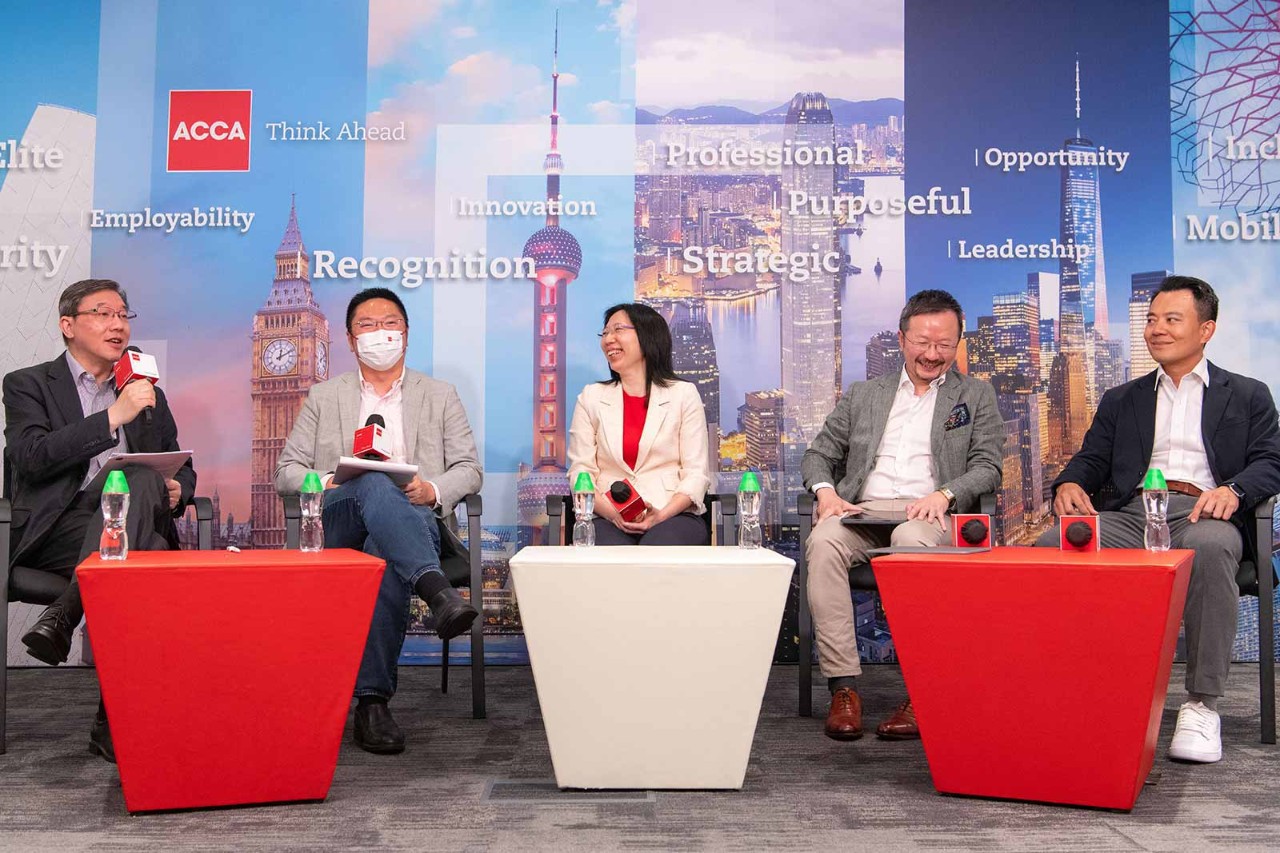
Hong Kong’s government is expected to continue refining its tax system to make it more business-friendly and introduce incentives to attract both businesses and talent.
Over the past year, Hong Kong has taken steps to update its tax regime in response to the OECD’s domestic tax base erosion and profit shifting (BEPS) 2.0, which calls for a minimum effective tax rate of 15% for multinational enterprise (MNE) groups with annual group revenues of at least €750m.
‘We have seen legislation development in tax and will see its impact,’ said Anita Tsang FCCA, director of tax policy and knowledge management at KPMG, as she presented an overview of the latest tax updates at the ACCA Hong Kong’s recent Virtual Tax Conference 2023.
New FSIE regime
One important development is the introduction of the foreign-sourced income exemption (FSIE) regime covering taxes on profits.
‘The FSIE regime is for passive income. It is in line with the EU’s requirement,’ said Charles Chan FCCA, co-chairman of the ACCA Hong Kong tax sub-committee and tax partner at PwC.
The new FSIE applies to consolidated entities in an enterprise group with a presence in more than one jurisdiction (MNE entity), which are carrying on trade or business in Hong Kong.
‘There are several issues that haven’t been made clear yet in practical application’
Beyond the FSIE regime, Pillar Two rules, which call for a global minimum tax on the earnings of large multinational businesses, can create challenges for Hong Kong taxpayers, especially those in the accounting and finance industry, due to a tight timeline for implementation and complicated documentation, Chan said.
Under the new FSIE regime, some foreign-sourced income such as interest, dividends and equity disposal gains are regarded as arising in or derived from Hong Kong and taxable as profits when they are received in Hong Kong, if they do not meet the economic substance requirement or the participation exemption conditions (for dividend and equity disposal gains).
‘For this new regime, there are several issues that haven’t been made clear yet in practical application,’ Tsang said.
One issue is how to define if income is ‘received in Hong Kong’ given that many transactions are complicated. A second is that the ‘subject-to-tax’ condition of the participation requirement is not fully clear in many situations.
‘Companies need to spend some time to study and assess the impact’

‘For those impacted businesses, the first thing is to assess the impact of FSIE regime on the business and its foreign-sourced income, and seek possible mitigation options,’ Tsang said.
If companies want to get more certainty on their positions, they can seek an advance ruling from the Inland Revenue Department (IRD).
BEPS 2.0 challenges
Hong Kong has faced a number of challenges in regard to tax, including the FSIE regime and BEPS 2.0. ‘To face such challenges, business in Hong Kong should get ready,’ said Dr Danny Po FCCA, ACCA Hong Kong vice chairman and an international and M&A tax partner at Deloitte China.
‘Separately, companies need to spend some time to study and assess the impact,’ said Sarah Chan FCCA, tax director for APAC at Belden, who added that they should assess and see which jurisdictions may attract a top-up tax under Pillar Two. ‘For those jurisdictions that might have more concerns in tax under Pillar Two, we need to put more attention on them.’
‘At the taxpayer level, the reporting requires a lot of resources from the company’
Compliance and data collection could also be a heavy burden on companies, she said: ‘For the GloBE Information Return documentation (standard format), we need to fill in around 20 pages for one jurisdiction. To fill those forms really requires a lot of data.’
Companies need to do data mapping and ensure that data is accurate because inaccuracies could cause problems.
Accurate data is increasingly important in a range of areas. A case in point is the Transitional CbCR Safe Harbour, that would allow an MNE to avoid undertaking detailed GloBE calculations for particular jurisdictions, saving resources in compliance. Companies need to demonstrate that they are qualified in the specific jurisdiction and for that they need to revisit CbCR data; if it is not correct, ‘this could lead a jurisdiction that should qualify for Transitional CbCR Safe Harbour to become non-qualified and pay top-up tax by mistake,’ said Sarah Chan. She suggested that companies with a presence in different jurisdictions should also get ready and observe their applicable timeline to implement Pillar Two.
Challenges for authorities
BEPS 2.0 has not only brought challenges to the private sector but also for the IRD. ‘At the taxpayer level, reporting requires a lot of resources from the company. The IRD also needs to tackle companies’ overseas tax issues, facing resource shortages,’ said Kenny Wei FCCA, a partner at EY’s transfer pricing services practice.
‘We need to think about the sectors we need to expand – for example, fintech’
More information
Read our article, ‘A bigger magnet for tax investment’, on the ACCA Hong Kong Virtual Tax Conference 2023
Wei noted that the IRD has always followed international tax developments, which could reduce the domestic practice and international practice discrepancy.
‘Hong Kong has been in line with the global tax system. For the taxpayer, it is expected to reduce the uncertainties. If the methodology is the same then we are on the same page,’ he said.
Jeff Tang, a partner and financial services leader for Greater China and ASEAN people advisory services at EY, shared similar thoughts, noting that being in line with the global system can reduce reputation and compliance risks.
Seeking talent
A talent shortage in tax and accounting expertise is also a concern for the accounting industry.
‘One positive thing of the internationalisation of the tax system is to facilitate talent mobility. If the tax system is similar, then overseas talents can apply their expertise here,’ Tang said, pointing out that the government has already rolled out policies such as the Top Talent Pass Scheme to entice professionals.
‘We need to think about the sectors we need to expand – for example, fintech. We need to attract organisations first,’ he said.
Wei noted that there are some specific sectors the government should focus on, such as innovation and technology, and biotechnology: ‘For those start-ups at the early stage, maybe the government could offer more help to them.’





